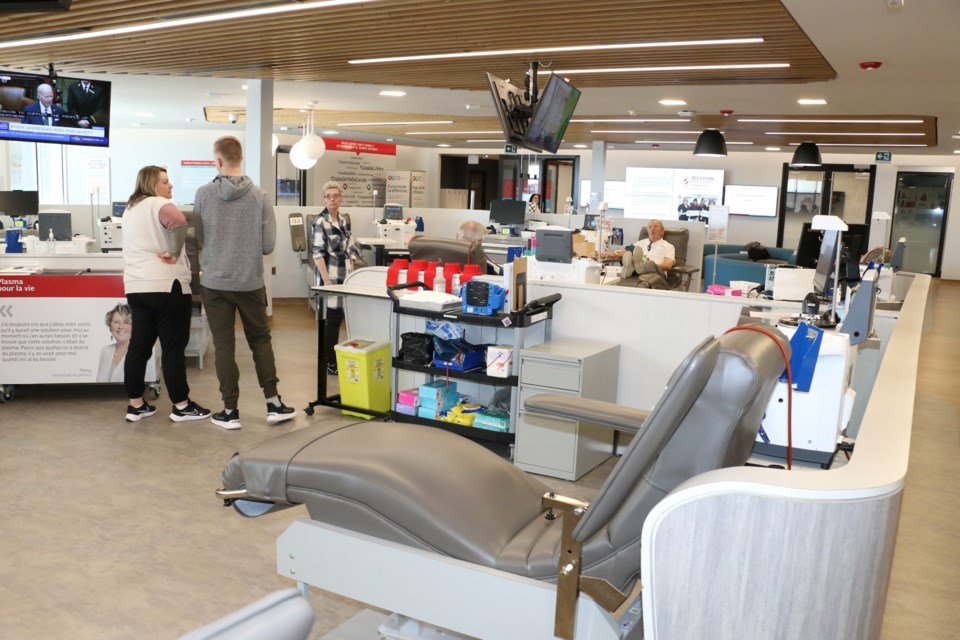Ontario's unionized nurses are upset that the Canadian Blood Services (CBS) partnered with a European company for outsourcing blood plasma collections and expressed fears the company might decide to provide payments for blood plasma donations.
In a news release issued Tuesday, the Ontario Nurses Association (ONA) called on the province to step in and stop the CBS plan to have a for-profit company get involved in a process of paying for something that has previously always been voluntary in Canada.
"Ontario's blood supply is a priceless public asset that must never be sold off to the highest bidder," said Erin Ariss, RN, Provincial President of the ONA.
The news release added that the union is outraged at the idea that CBS "has signed a deal to undermine our public, voluntary collection centres in Ontario and across the country."
The ONA release said that CBS was created in 1998 to restore the trust of Canadians after the tainted blood scandal of the 1980s when hundreds of Canadians were infected by HIV and/or Hepatitis-C from blood collected by the Red Cross. It resulted in a federal Royal Commission of Inquiry and billions of dollars worth of lawsuits.
Tuesday's news release said ONA was unhappy that an agreement was signed with an international pharmaceutical company, Grifols of Barcelona, Spain. There was reference in the news release that CBS has been struggling to reach a reliable supply of plasma.
CBS operates a plasma collection centre in Sudbury, on Lasalle Boulevard. The Sudbury centre is one of three plasma-only collection centres in Canada at the moment, although it is possible that more will be created.
CBS communications spokesperson Adrienne Silver said the concerns voiced by the ONA are unwarranted. Silver said there are no plans by CBS to initiate a pay-for-plasma system in Canada.
"Our agreement with Grifols will not change Canadian Blood Services’ operations in Sudbury or anywhere else in Canada, and we do not pay donors," Silver told Sudbury.com in an email response.
The announcement from Grifols (NASDAQ:GRFS) on June 8 said the company — "a global leader in plasma medicines with more than 110 years contributing to improve the health and well-being of people, today announced it has signed an agreement with Canadian Plasma Resources (CPR), a Canadian plasma collector licensed by Health Canada, under which Grifols Group has the right to obtain plasma donated in CPR centers. Grifols Group has the intention to acquire CPR centers by the end of 2025."
The Grifols news release said the company has plans to open more plasma donation centres in Canada, including Winnipeg and Edmonton.
“Grifols Group is moving full speed ahead on its commitment to Canadian Blood Services, helping Canada achieve self-sufficiency for the patients there who depend on lifesaving plasma therapies,“ said Raimon Grifols, Grifols Chief Corporate Officer.
“We’re ensuring that all available Canadian plasma output that we obtain remains in Canada and is manufactured into medicines in Canada to support patients in Canada.”
Critics have said the Grifols business model would have the company pay the donors for their plasma. Currently in Ontario and British Columbia, paying for blood donations is banned but there are exemptions in both provinces for CBS, or its partners.
ONA president Ariss said the nurses union is hoping that Queen's Park will step up, intervene and forbid any sort of deal between CBS and the for-profit plasma industry.
Len Gillis covers health care and mining for Sudbury.com.
